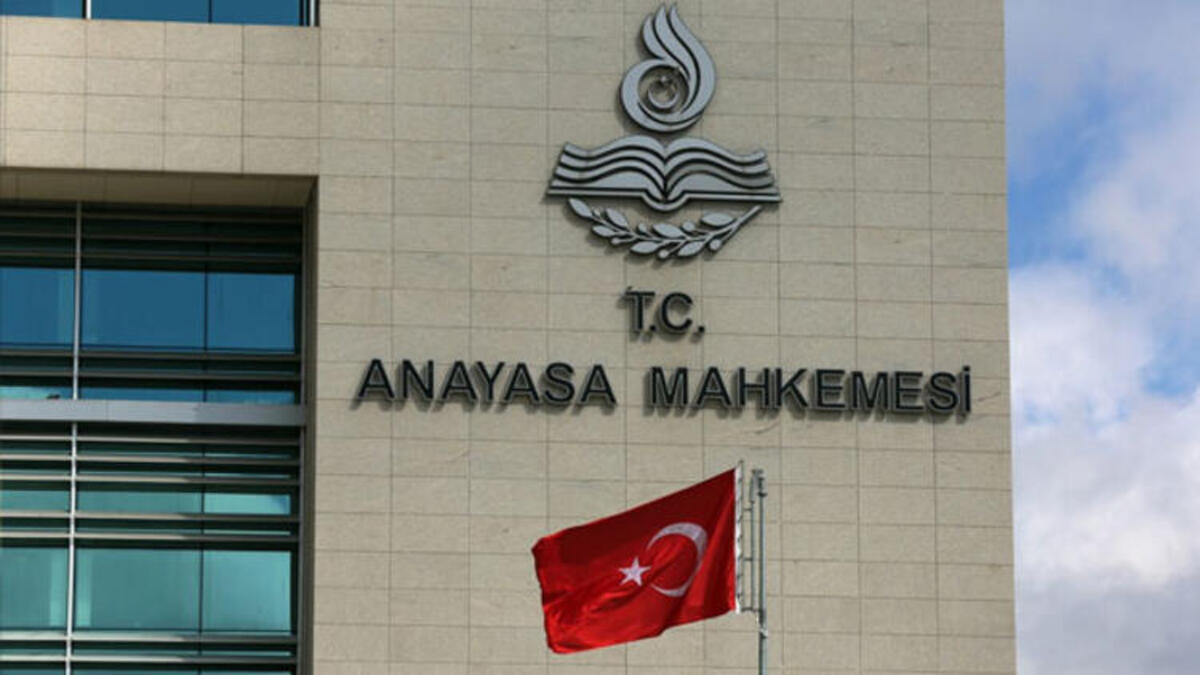Turkey’s Constitutional Court has underlined in a reasoned decision that lower courts don’t have the right to defy its rulings, warning that attempts in that direction would result in criminal, administrative and legal liabilities, local media reported on Wednesday.
The top court on Wednesday issued its reasoned decision for its second ruling in the case of Enis Berberoğlu, a former main opposition Republican People’s Party (CHP) deputy. It had said back in January that his rights to stand for election and engage in political activities along with his right to freedom and security were violated.
Although the court found rights violations in the case in October, Berberoğlu was not retried, as the İstanbul 14th High Criminal Court unlawfully refused to enforce the decision.
Following the court’s resistance, the İstanbul 15th High Criminal Court also declined to enforce the top court’s ruling in favor of Berberoğlu, stating that there was no need for a retrial.
Berberoğlu, who spent 15 months in jail on espionage charges, then had to apply to the Constitutional Court a second time, which also resulted in a similar decision that said the rights of the former MP had been violated.
The top court on Wednesday warned lower courts about refusing to enforce its rulings in the case, saying the move would give rise to criminal, administrative and legal liabilities since it violates Article 153 of the Turkish Constitution, which says Constitutional Court decisions are final and binding for all subordinate courts across Turkey’s legal landscape.
Protecting the constitutional order and enforcing decisions of the top court is not only the duty of the lower courts but also of other government institutions, especially the Turkish Parliament and the Board of Judges and Prosecutors (HSK), the top court further said in its reasoned decision.
The former CHP lawmaker was sentenced to five years, 10 months due to a news report that revealed Turkey’s involvement in arms shipments to Islamist groups in Syria in 2014. He was accused of providing Can Dündar, editor-in-chief of the Cumhuriyet daily, with footage of trucks belonging to Turkey’s National Intelligence Organization (MİT) transporting weapons.
After he was jailed in 2017, Berberoğlu was re-elected as a member of parliament in the June 24, 2018 elections. He was released on September 20, 2018, when the Supreme Court of Appeals postponed the execution of his sentence due to his re-election.
The lawmaker was jailed again when parliament stripped him of his deputy status on June 4 after his convictions were upheld, but his imprisonment was changed to house arrest as part of measures taken against COVID-19.
Berberoğlu had submitted an individual application to the Constitutional Court with regard to his imprisonment, during his trials, saying his continued imprisonment despite his re-election as a deputy had violated his rights. Following the Constitutional Court ruling in September in favor of Berberoğlu, his lawyer had called for the reinstatement of his status as a deputy.
The Berberoğlu case is not the first in Turkey in which a local court has refused to acknowledge the top court’s ruling, as occurred with the Constitutional Court rulings in favor of other prominent figures such as Osman Kavala, a rights activist, and Selahattin Demirtaş, the former leader of Turkey’s pro-Kurdish Peoples’ Democratic Party (HDP).
